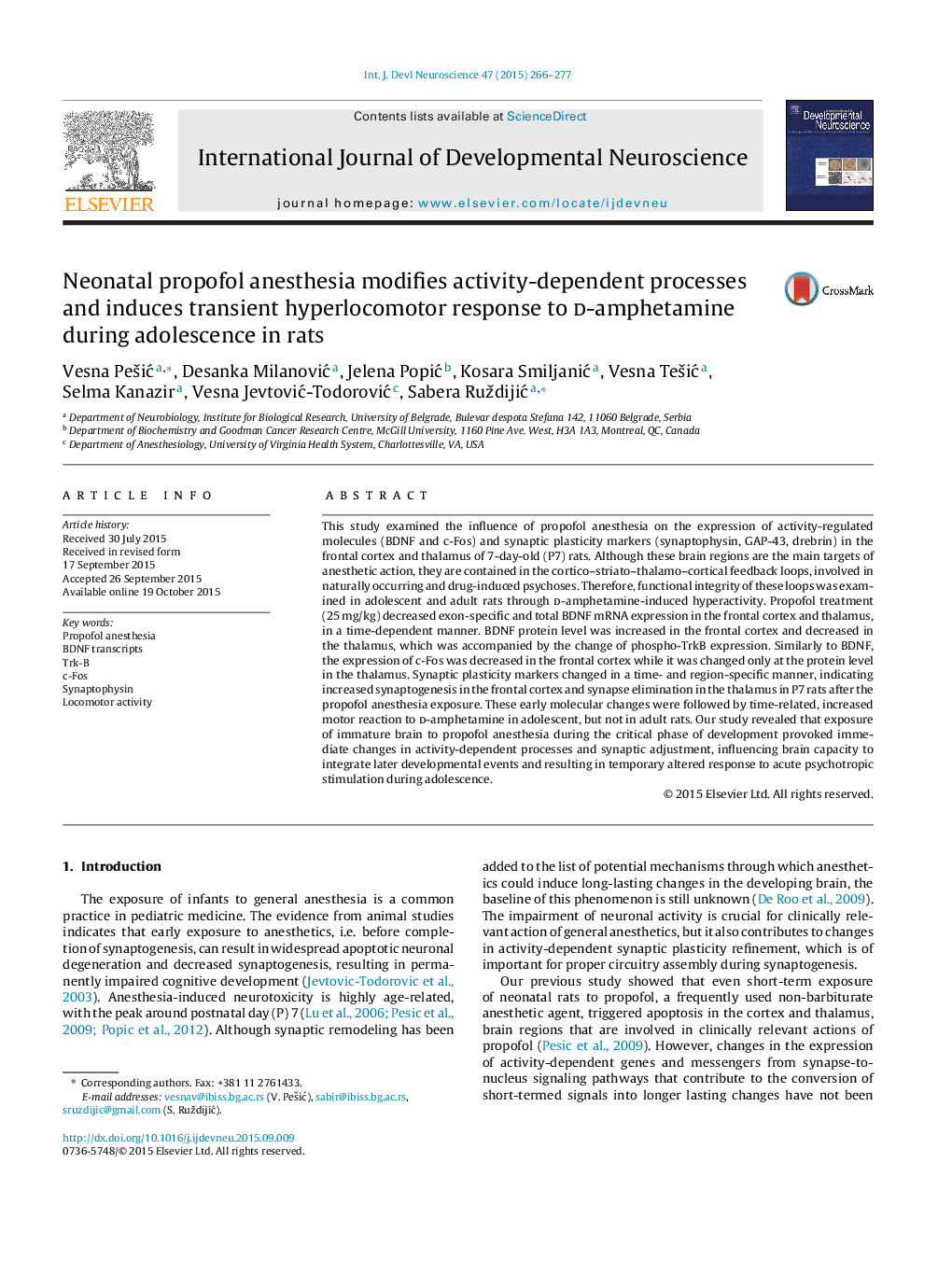| Article ID | Journal | Published Year | Pages | File Type |
|---|---|---|---|---|
| 2785654 | International Journal of Developmental Neuroscience | 2015 | 12 Pages |
•Propofol affected activity-regulated events in the frontal cortex and thalamus of P7 rats.•Propofol changed BDNF and c-Fos expression in time- and region-specific manner.•The treatment influenced the expression of synaptophysin, GAP-43 and drebrin.•The treatment influenced locomotor response of P35 animals to d-amphetamine.•Neonatal anesthesia affected integrity/maturation of cortico-subcortical paths.
This study examined the influence of propofol anesthesia on the expression of activity-regulated molecules (BDNF and c-Fos) and synaptic plasticity markers (synaptophysin, GAP-43, drebrin) in the frontal cortex and thalamus of 7-day-old (P7) rats. Although these brain regions are the main targets of anesthetic action, they are contained in the cortico–striato–thalamo–cortical feedback loops, involved in naturally occurring and drug-induced psychoses. Therefore, functional integrity of these loops was examined in adolescent and adult rats through d-amphetamine-induced hyperactivity. Propofol treatment (25 mg/kg) decreased exon-specific and total BDNF mRNA expression in the frontal cortex and thalamus, in a time-dependent manner. BDNF protein level was increased in the frontal cortex and decreased in the thalamus, which was accompanied by the change of phospho-TrkB expression. Similarly to BDNF, the expression of c-Fos was decreased in the frontal cortex while it was changed only at the protein level in the thalamus. Synaptic plasticity markers changed in a time- and region-specific manner, indicating increased synaptogenesis in the frontal cortex and synapse elimination in the thalamus in P7 rats after the propofol anesthesia exposure. These early molecular changes were followed by time-related, increased motor reaction to d-amphetamine in adolescent, but not in adult rats. Our study revealed that exposure of immature brain to propofol anesthesia during the critical phase of development provoked immediate changes in activity-dependent processes and synaptic adjustment, influencing brain capacity to integrate later developmental events and resulting in temporary altered response to acute psychotropic stimulation during adolescence.
